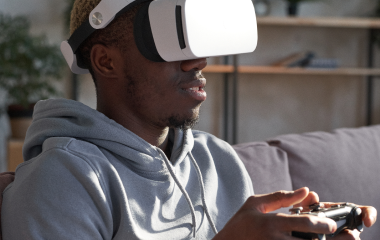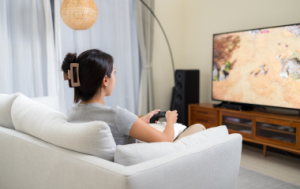

Video games, since their inception, have been a source of entertainment, camaraderie, and at times, controversy. While many laud them for their educational and cognitive benefits, others raise concerns about potential adverse effects. Delving deeper, it becomes evident that the relationship between gaming and psychology is multifaceted.
Starting on a positive note, numerous studies have highlighted the cognitive benefits of gaming. Strategy games, for instance, have been linked to improved problem-solving skills. They often require players to think several steps ahead, similar to chess, developing their foresight and tactical abilities. Meanwhile, fast-paced action games can sharpen reflexes and enhance hand-eye coordination. There’s also evidence to suggest that certain games can boost memory, spatial awareness, and multitasking skills.
The social aspect of gaming is equally noteworthy. Multiplayer online games have created vast virtual communities where players collaborate, communicate, and forge relationships. For many, especially in the digital age, these platforms serve as essential social outlets. They provide spaces for shared experiences, mutual support, and even real-life friendships or partnerships.
However, like all things, moderation is key. Overindulgence in gaming can lead to negative repercussions. Excessive play, especially in immersive MMORPGs (Massively Multiplayer Online Role-Playing Games), can blur the boundaries between reality and the virtual world. In extreme cases, this might lead to gaming addiction, where individuals prioritize in-game achievements over real-life responsibilities and relationships.
Furthermore, there’s the concern about violent video games and their potential influence on aggressive behavior. While research on this topic is ongoing and often debated, it’s crucial for players (and guardians, in the case of young gamers) to be discerning about game choices and reflect on their content.
Physical health is another consideration. Extended gaming sessions without breaks can lead to sedentary lifestyles, contributing to various health issues like obesity, eye strain, and posture-related problems.
Yet, it’s essential to remember that games, in themselves, are neutral tools. Their impact, be it positive or negative, largely depends on usage patterns and individual choices. With mindful gaming practices—taking regular breaks, balancing play with other activities, and engaging critically with content—most gamers can enjoy the medium’s benefits while mitigating potential risks.
In conclusion, the world of gaming is as vast and varied as its player base. Its psychological impacts, both uplifting and cautionary, serve as a testament to its profound influence in the modern era. As with any form of media or entertainment, awareness, moderation, and critical engagement are the keys to a fulfilling gaming experience.
Share this post



Your Portal to Gaming Adventure.
Where gaming is not just a hobby but a way of life
10 Responses
I think the debate around violent video games is important. While I enjoy first-person shooters, I always try to be mindful of the content and its impact.
This is a thoughtful exploration of gaming’s impacts. I’ve seen both the positive and negative sides in my own life, and it’s all about finding that balance.
I appreciate the balanced view you provided. Gaming can be both beneficial and harmful, depending on how we engage with it. Mindful gaming is the way to go!
This is such an insightful post! I love how you highlighted the cognitive benefits of gaming. It’s amazing how much strategy goes into games like Starcraft or even Settlers of Catan!
Thanks for this comprehensive overview! I’ve always known gaming can be beneficial, but it’s refreshing to see it articulated so clearly.
I completely agree about the social aspects of gaming. I’ve met some of my closest friends through online games, and those connections are incredibly meaningful.
Great points on moderation! It’s so easy to lose track of time while gaming. Setting limits has helped me balance my gaming with other responsibilities.
Thanks for shedding light on the physical health aspect! I’ve started incorporating breaks and stretches while gaming to combat the sedentary lifestyle.
This article really resonated with me. I’ve noticed significant improvements in my problem-solving skills since I started playing puzzle games. They definitely challenge my brain!
Interesting read! I think a lot of parents underestimate the positive effects of gaming, especially when it comes to teamwork and communication in multiplayer games.